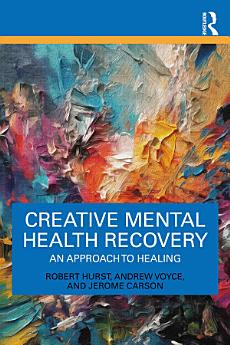Creative Mental Health Recovery: An Approach To Healing
About this ebook
Through a review of historical and contemporary literature and research findings on the topic, the book starts by giving readers an idea of the state of play of conceptualisations of both creativity and recovery. The authors arrive at and present their own definitions of these concepts, using autoethnography to bring their own experiences into the text. They then illustrate to the reader what creativity in recovery looks like in practice, through interviews with and written accounts from creative individuals who have experienced a mental health recovery journey, grounding the theory with tangible stories of application. The interviews are analysed, with themes picked out and a model of creativity and recovery produced by the authors. Implications and possible future directions are then discussed.
This unique presentation of creative recovery will be of interest to a wide range of mental health professionals, specifically those studying or practising mental health recovery and creative therapies.
About the author
Robert Hurst is an associate lecturer in the School of Psychology, University of Bolton. Alongside this, he is a practising person- centred counsellor, registered with the British Association for Counselling and Psychotherapy.
Andrew Voyce is a researcher and lived experience consultant. He is the author of several peer reviewed papers and two books. He has guest lectured on mental health recovery to a wide array of university students in the UK. In 2024, Andrew was awarded an honorary doctorate from the University of Bolton.
Jerome Carson is professor of psychology at the University of Bolton. A qualified clinical psychologist, Jerome’s main research interests are mental health recovery, positive psychology, autoethnography, and alcohol addiction.








